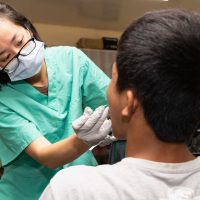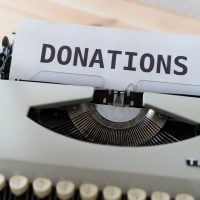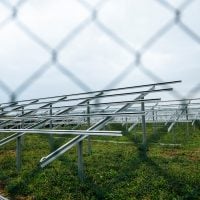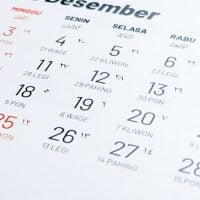Deadline: 8 January 2020
The U.S. Department of State, Bureau of Democracy, Human Rights and Labor Rights (DRL) has announced an open competition for organizations interested in submitting Statements of Interest for projects that support the policy objective to promote human rights, accountability, and access to information in the Democratic People’s Republic of Korea (DPRK).
Where appropriate, competitive proposals may include:
- Opportunities for beneficiaries to apply their new knowledge and skills in practical efforts.
- Solicitation of feedback and suggestions from beneficiaries when developing activities in order to strengthen the sustainability of programs and participant ownership of project outcomes.
- Input from participants on sustainability plans and systematic review of the plans throughout the life of the project with adjustments made as necessary.
- Inclusion of vulnerable populations.
- Joint identification and definition of key concepts with relevant stakeholders and stakeholder input into project activities.
- Systematic follow up with beneficiaries at specific intervals (3 months, 6 months, etc.) after the completion of activities to track how beneficiaries are retaining new knowledge as well as applying their new skills.
Fostering the Free Flow of Information into, out of, and within the DPRK: DRL seeks projects that promotes human rights and accountability through the programmatic approach of fostering the free flow of information into, out of and within the DPRK. Illustrative program activities include:
- Producing and transmitting radio broadcasts into North Korea, including managing the transmissions of radio broadcasts into North Korea on behalf of existing defector-led or Seoul-based organizations producing radio programs for North Korean audiences;
- Producing content and/or acquiring existing content of interest to North Korean audiences;
- Exploring new mechanisms or expanding existing mechanisms for sharing or consuming information and content;
- Raising awareness of legal rights under existing DPRK domestic laws and its international human rights obligations;
- Raising awareness of international best-practices and norms; and,
- Promoting fundamental freedoms, including freedoms of expression, movement, association, and peaceful assembly.
Organizations may propose activities not specifically identified above that align with the approach of fostering the free flow of information to promote human rights. Organizations submitting applications for this category are strongly encouraged to do so in partnership with at least one other organization. The organization submitting the application is designated as the lead applicant with partner organizations included as sub-award recipients. While organizations are limited to submitting only one (1) application under this category, this limitation does not extend to being included as a partner in another organization’s application.
Documentation and Advocacy: DRL seeks projects that promotes human rights and accountability through the programmatic approach of increasing the amount of objective, credible information available about human rights in the DPRK, raising international awareness about human rights conditions, and engaging international actors to adopt approaches or actions that facilitate improvements in human rights conditions and/or lead to increased accountability for human rights violations and abuses. Illustrative program activities include:
- Establishing and/or maintaining a public online database of prisons and gulags in the DPRK, including a list of political prisoners;
- Documenting cases of human rights violations and abuses against DPRK citizens, including cases of forced repatriations or other human rights violations or abuses of North Korean people outside of the DPRK;
- Publishing reports that meaningfully contribute to, but do not duplicate or repackage, public information on DPRK human rights conditions;
- Increasing information available on perpetrators of human rights violations or abuses;
- Amplifying the documentation work of the UN Commission of Inquiry on the situation in the DPRK;
- Submitting reports or conducting advocacy campaigns at international or other relevant forums; and,
- Expanding global partnerships to mobilize increased support in other regions and countries for human rights in North Korea.
Award Information
An organization may submit no more than one (1) SOI per category, for a total of two (2) SOIs, and must explicitly identify the category the SOI is being submitted. SOIs that request less than $750,000 or more than $3,000,000 may be deemed technically ineligible.
Eligibility Criteria
- Organizations submitting SOIs must meet the following criteria:
- Be a U.S.- or foreign-based non-profit/non-governmental organization (NGO), or a public international organization; or
- Be a private, public, or state institution of higher education; or
- Be a for-profit organization or business
- Have existing, or the capacity to develop, active partnerships with thematic or in-country partners, entities, and relevant stakeholders including private sector partner and NGOs;
- Have demonstrable experience administering successful and preferably similar programs. DRL reserves the right to request additional background information on organizations that do not have previous experience administering federal awards. These applicants may be subject to limited funding on a pilot basis.
- Applicants may form consortia and submit a combined SOI. However, one organization should be designated as the lead applicant with the other members as sub-award partners.
- DRL’s preference is to work with non-profit entities; however, there may be occasions when a for-profit entity is best suited. For-profit entities should be aware that its application may be subject to additional review following the panel selection process, and that the Department of State generally prohibits profit under its assistance awards to for-profit or commercial organizations. Profit is defined as any amount in excess of allowable direct and indirect costs.
- The allowability of costs incurred by commercial organizations is determined in accordance with the provisions of the Federal Acquisition Regulation (FAR) at 48 CFR 30, Cost Accounting Standards Administration, and 48 CFR 31 Contract Cost Principles and Procedures. Program income earned by the recipient must be deducted from the program’s total allowable costs in determining the net allowable costs on which the federal share of costs is based.
- DRL is committed to an anti-discrimination policy in all of its programs and activities. DRL welcomes SOI submissions irrespective of race, ethnicity, color, creed, national origin, gender, sexual orientation, gender identity, disability, or other status.
For more information, visit https://www.grants.gov/web/grants/view-opportunity.html?oppId=322631









































